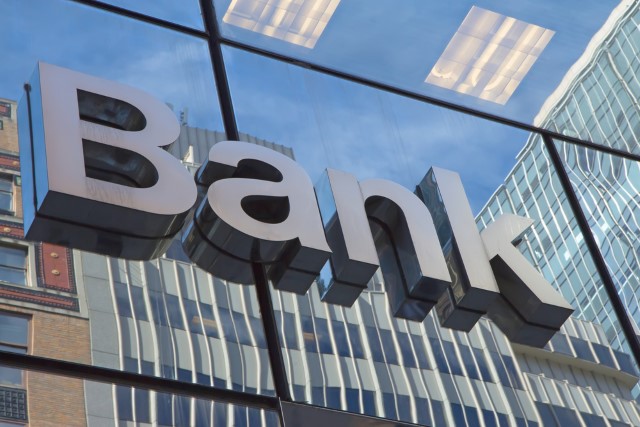
High security savings account promises tighter protection against modern banking scams
A new kind of savings account built to stop fraud before it starts is now available nationwide. Fort Knox Bank’s High-Security Savings Account, developed by Austin Capital Bank, removes passwords entirely and uses biometric identity verification with proprietary Closed-Loop technology to keep criminals out.
The launch comes at a time when U.S. consumers are facing unprecedented levels of financial crime. According to the Federal Trade Commission, losses from fraud hit $12.5 billion in 2024, a 25 percent leap from the year before.

UK financial sector under constant cyberattack
The financial sector in the UK is under constant attack and that it is grappling to keep pace with ever-evolving cyber threats, according to a new report from security awareness training company KnowBe4.
The frequency of ransomware attacks on the financial sector in the UK doubled in 2023, showcasing an alarming escalation. Phishing and Business Email Compromise (BEC) remain the top threats to organizations including financial institutions.

Why a new architecture is needed for open banking API platforms [Q&A]
While much literature has been written on best practices for systems architecture, the desired outcomes have been as elusive as they have been sought after. The de-facto standard for enterprise systems that exists in reality is often closer to A Big Ball of Mud.
Very rarely is an organization’s technology (the infrastructure, the software or the set of systems powering the organization) planned as the state in which we see it today. All early systems need to scale, and most companies in the growth phase don't have the bandwidth to deal with this graciously.

Why open banking holds the key to customer centricity
The proliferation of fintech platforms has prompted consumers to demand more from their banks. Historically, legacy industry resistance to securely sharing customer data with third parties has deprived banks of opportunities to engage customers and foster longer-term retention more deeply. Many incumbent banks felt an open banking structure threatened their business models. However, as banks shift their mindset and embrace open banking, it’s evident that the 'mainstreaming' of an open banking infrastructure benefits both banks and consumers through a larger marketplace of product options.
Consumers can use open banking by consenting to share their data with other providers securely and receive a more comprehensive range of product offerings and more personalized and efficient services -- all in one place.

The new challenger bank ethos: Why sustainability is fueling the next wave of disruption
If you were to take their marketing at face value, you’d assume that big banks were leading the finance sector’s charge regarding sustainability. And while they undoubtedly play an essential role, especially when financing major renewable energy projects and the like, the biggest disruption comes from challenger banks.
Increasingly, popular challenger banks such as Monzo and Starling, for example, are marketing themselves as more sustainable, capitalizing on a growing desire for banks to prioritize the environment. In fact, a recent report found that 67 percent of customers want their bank to be more sustainable.

Neobanks are on the rise: Can legacy banks keep pace?
Neobanks have shaken up the banking status quo since the introduction of PSD1 and PSD2, tempting customers in with user-friendly interfaces and streamlined processes. Legacy banks have struggled to keep up with the pace of innovation in the sector, and as a result, the industry is littered with rushed digital offerings that exacerbate the feeling that neobanks are pulling ahead in the digital transformation race.
In this day and age, having a low-quality digital banking platform is enough to turn customers away in favor of the digitally proficient neobanks. Customer loyalty doesn’t hold as fast as it once did, and customers are far more aware of the alternative services available to them at challenger digital banks. The traditional incumbents can’t continue to hope that their history and experience will win out as customers continue to experience low-quality customer service and deficient digital banking services.

Could advances in technology help banks increase their ESG potential?
Big banks once had almost unmatched dominance over the global financial sector. It allowed them to build glittering skyscrapers as their headquarters and helped transform London’s Canary Wharf from disused docks into what is probably Europe’s preeminent financial hub. In recent years, however, that dominance has come under threat from challenger and neo-banks, as well as from innovative fintech startups.
In fact, research released in 2022 shows that as many as 44 percent of UK business banking customers have already switched from a traditional bank to an online one. Almost two-thirds (65 percent) made the switch because they thought the online bank offered a better product. At the same time, the collapse of Silicon Valley Bank and the forced takeover of Credit Suisse by UBS has players across the sector scrabbling to avoid a global banking crisis.
